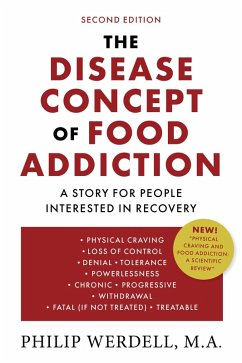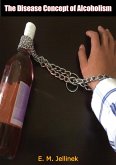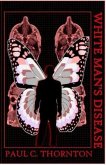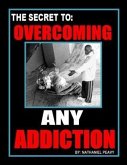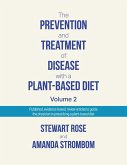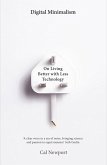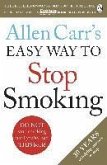Mr. Werdell is a recovered food addict who has worked professionally with over 5000 middle- and late-stage food addicts since 1988. This book is built upon a highly successful introductory lecture he has presented to clients interesting in finding out whether they are food addicted and learning how to treat their disease. Many are unable to find long-term recovery from problems of overweight and eating disorders. An important reason is that many of those who are unsuccessful have developed an addiction to specific foods, e.g., sugar and other ultra-processed foods. One of the best ways of discovering whether someone is food addicted is if they identify with the experiences of others who are developing the characteristics of an addiction, which include: Physical craving Loss of control Denial Tolerance Powerlessness Chronic Progressive Withdrawal Fatal (if not treated) TreatableThis book is a description of the highly successful lecture Mr. Werdell presents to people wanting to begin professional treatment. He shares his own experiences of when he was active in the disease and then elicits from the audience whether there are ways in which they identify with his experiences. Mr. Werdell was the front-line counselor at the six- to eight-week residential treatment program offered by Glenbeigh Psychiatric Hospital of Tampa. After that, he became clinical director of a food addiction program at Rader Institute of Washington state. When health insurance companies cut off payment for residential treatment for food addiction in 1996, Mr. Werdell created ACORN Food Dependency Recovery Services (now SHiFT, Recovery by ACORN), which provided a workshop-based program for those middle- and late-stage food addicts who did not need hospitalization or direct medical supervision. This has been a highly successful program since 1995 and is considered a model of world-class treatment for food addiction. Mr. Werdell has also written extensively about the disease of food addiction, including a review of the latest science with members of the International Advisory Board of the Food Addiction Institute. This research documents the overwhelming scientific evidence for physical craving and loss of control experienced by some people for whom dieting and talk therapy do not work. The scientific report, Physical Craving and Food Addiction: A Scientific Review Paper, was part of the consideration by the American Psychiatric Association in their finding that many with eating disorders also have characteristics of "e;food as a substance use disorder."e; The paper has been added to this edition of this book. The first step in successful long-term recovery from food addiction is the deep acceptance that food addiction is a disease. This understanding leads to an abstinence-based approach to recovery and often the need for peer and professional support to recover from the disease of food addiction.
Dieser Download kann aus rechtlichen Gründen nur mit Rechnungsadresse in A, B, BG, CY, CZ, D, DK, EW, E, FIN, F, GR, HR, H, IRL, I, LT, L, LR, M, NL, PL, P, R, S, SLO, SK ausgeliefert werden.

